The Silurian Gift
Sunday, 10 February 2013 - Reviewed by
Make no mistake; we Doctor Who fans are a lucky crowd. It’s rare to find many television shows these days whose cult following is rewarded with such plentiful bonus releases on top of the annual new run of episodes, yet since 2006, BBC Books have consistently offered us the chance to indulge yearly Quick Reads adventures featuring the latest Doctor. Aimed at those fans who either simply don’t have the time to pick up Gareth Roberts’s lengthy one-hundred-and-ninth adaptation of Shada, or indeed those who wouldn’t be caught dead leaving WHSmith with anything heavier than the new Doctor Who Magazine, these brief jaunts have nevertheless enthralled readers young and old over the years, and The Silurian Gift aims to appeal to much the same wide audience.
Of course, with the 50th Anniversary year now upon us, and a multitude of celebratory series landmarks and live events undoubtedly on the way, it’s inevitable that Mike Tucker’s new novel carries with it a weight of expectation. Tucker rightfully opts out of including the new companion Clara in proceedings, so the words "Run, you clever boy, and remember" anywhere aren’t anywhere to be found this time around. While some might call this a missed opportunity on the author’s part, if anything in terms of both continuity and the ongoing Clara mystery it make things far simpler- much as Jacqueline Rayner’s 2009 romp The Sontaran Games served as a neat interlude between The Next Doctor and Planet Of The Dead, so too do the Eleventh Doctor’s adventures at the South Pole fit delicately between The Snowmen and Steven Moffat’s upcoming anniversary season premiere coming our way on March 30th.
Crucially, though, it’s the narrative fans will want to assess- can Tucker possibly live up to the series’ fifty-year legacy in the midst of such a rare event in television? Thankfully, the answer is in the affirmative: by reintroducing the Silurians in their 2010-2013 guise, yet meanwhile integrating elements of their classic series lore, the man behind the proverbial camera (or indeed, ‘behind the pen’ in this case) has created an innovative and unique adventure that would be impressive even by the show’s increasingly-high standards on screen. I won’t reveal anything concrete for fear of River Song knocking down my door moments later, but suffice to say that fans of Doctor Who And The Silurians, The Sea Devils and Warriors Of The Deep won’t be disappointed in terms of the reverence and respect that Tucker pays to those three iconic tales.
An author’s characterisation of the Doctor himself is always a vital component to the success of any Who novel, and in this respect Tucker excels. Clearly the three years that Matt Smith has spent in the role so far have given the writer time to accurately develop an incredibly realistic version of the eleventh incarnation of the Time Lord on paper, channelling Smith’s eccentric and humorous dialogue, his active physicality in adventures and indeed his hopeless sense of authority into each and every chapter in which the Doctor appears. The story’s other protagonist is a young journalist, Lizzie, who pretty much fits the bill as the average one-off companion, portrayed in a subdued manner with little overall impact on the Time Lord’s character arc. Tucker’s adversary characters are believable too, each of them either driven by that same lust for power as the likes of Van Statten and Solomon, or indeed a desperate desire to survive on a world which they previously inhabited.
There are one or two shortcomings that hold The Silurian Gift back from aspiring to the level of Human Nature and other iconic Who novels, however. The first flaw is one that’s plagued the Quick Reads saga that the show has adopted ever since 2006, the ultimate brevity of the text and thus the inevitably rushed pacing on Tucker’s part. Perhaps this is a drawback that these annual jaunts will never be able to avoid, yet seasoned readers could well wonder if building towards a climax earlier in the novel would have allowed the author to provide a more meaningful dénouement. Subsequently, although The Silurian Gift’s narrative contains a few unexpected surprises, it’s difficult to shake the feeling of déjà vu of another Silurian tale focusing on the eponymous reptiles’ attempts to take back the Earth, and indeed the inevitable final assertion that humans cannot yet live in peace with their predecessors; seriously, just how many taskforces will awake from hibernation thanks to the Doctor’s choice of postponing their return by 100 years or so? Steven Moffat appears to have grasped the fact that repetition can spawn tedium in this respect, having taken this intriguing race and utilising them in innovative ways in A Good Man Goes To War and The Snowmen, but it’s something that clearly still needs to be addressed in the New Series Adventures novels.
Nevertheless, having been provided with such a sterling first novel for the 50th Anniversary, it feels almost churlish to pick up on its minor stumbles. The Silurian Gift is without question one of the better outings produced within the BBC Books range of Doctor Who novels since they returned in 2005, a fast-paced and enthralling romp that should capture the imagination of both its intended reading-averse target audience and indeed the wider fanbase as a whole. Just as we’re no doubt hoping that this year’s episodes will feature blasts to the past while looking ahead to the future, Mike Tucker manages both challenges with aplomb and confidence. If great reads such as this and indeed the wealth of other CD and DVD releases and news announcements we’ve had so far in 2013 are any indication, then it seems this will be a truly sensational 50th Anniversary year for Doctor Who. Bring on the next ten months…
Of course, with the 50th Anniversary year now upon us, and a multitude of celebratory series landmarks and live events undoubtedly on the way, it’s inevitable that Mike Tucker’s new novel carries with it a weight of expectation. Tucker rightfully opts out of including the new companion Clara in proceedings, so the words "Run, you clever boy, and remember" anywhere aren’t anywhere to be found this time around. While some might call this a missed opportunity on the author’s part, if anything in terms of both continuity and the ongoing Clara mystery it make things far simpler- much as Jacqueline Rayner’s 2009 romp The Sontaran Games served as a neat interlude between The Next Doctor and Planet Of The Dead, so too do the Eleventh Doctor’s adventures at the South Pole fit delicately between The Snowmen and Steven Moffat’s upcoming anniversary season premiere coming our way on March 30th.
Crucially, though, it’s the narrative fans will want to assess- can Tucker possibly live up to the series’ fifty-year legacy in the midst of such a rare event in television? Thankfully, the answer is in the affirmative: by reintroducing the Silurians in their 2010-2013 guise, yet meanwhile integrating elements of their classic series lore, the man behind the proverbial camera (or indeed, ‘behind the pen’ in this case) has created an innovative and unique adventure that would be impressive even by the show’s increasingly-high standards on screen. I won’t reveal anything concrete for fear of River Song knocking down my door moments later, but suffice to say that fans of Doctor Who And The Silurians, The Sea Devils and Warriors Of The Deep won’t be disappointed in terms of the reverence and respect that Tucker pays to those three iconic tales.
An author’s characterisation of the Doctor himself is always a vital component to the success of any Who novel, and in this respect Tucker excels. Clearly the three years that Matt Smith has spent in the role so far have given the writer time to accurately develop an incredibly realistic version of the eleventh incarnation of the Time Lord on paper, channelling Smith’s eccentric and humorous dialogue, his active physicality in adventures and indeed his hopeless sense of authority into each and every chapter in which the Doctor appears. The story’s other protagonist is a young journalist, Lizzie, who pretty much fits the bill as the average one-off companion, portrayed in a subdued manner with little overall impact on the Time Lord’s character arc. Tucker’s adversary characters are believable too, each of them either driven by that same lust for power as the likes of Van Statten and Solomon, or indeed a desperate desire to survive on a world which they previously inhabited.
There are one or two shortcomings that hold The Silurian Gift back from aspiring to the level of Human Nature and other iconic Who novels, however. The first flaw is one that’s plagued the Quick Reads saga that the show has adopted ever since 2006, the ultimate brevity of the text and thus the inevitably rushed pacing on Tucker’s part. Perhaps this is a drawback that these annual jaunts will never be able to avoid, yet seasoned readers could well wonder if building towards a climax earlier in the novel would have allowed the author to provide a more meaningful dénouement. Subsequently, although The Silurian Gift’s narrative contains a few unexpected surprises, it’s difficult to shake the feeling of déjà vu of another Silurian tale focusing on the eponymous reptiles’ attempts to take back the Earth, and indeed the inevitable final assertion that humans cannot yet live in peace with their predecessors; seriously, just how many taskforces will awake from hibernation thanks to the Doctor’s choice of postponing their return by 100 years or so? Steven Moffat appears to have grasped the fact that repetition can spawn tedium in this respect, having taken this intriguing race and utilising them in innovative ways in A Good Man Goes To War and The Snowmen, but it’s something that clearly still needs to be addressed in the New Series Adventures novels.
Nevertheless, having been provided with such a sterling first novel for the 50th Anniversary, it feels almost churlish to pick up on its minor stumbles. The Silurian Gift is without question one of the better outings produced within the BBC Books range of Doctor Who novels since they returned in 2005, a fast-paced and enthralling romp that should capture the imagination of both its intended reading-averse target audience and indeed the wider fanbase as a whole. Just as we’re no doubt hoping that this year’s episodes will feature blasts to the past while looking ahead to the future, Mike Tucker manages both challenges with aplomb and confidence. If great reads such as this and indeed the wealth of other CD and DVD releases and news announcements we’ve had so far in 2013 are any indication, then it seems this will be a truly sensational 50th Anniversary year for Doctor Who. Bring on the next ten months…
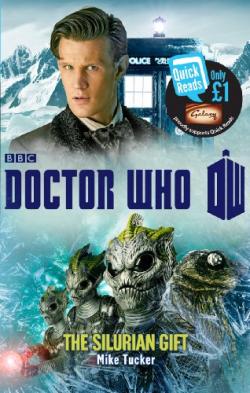

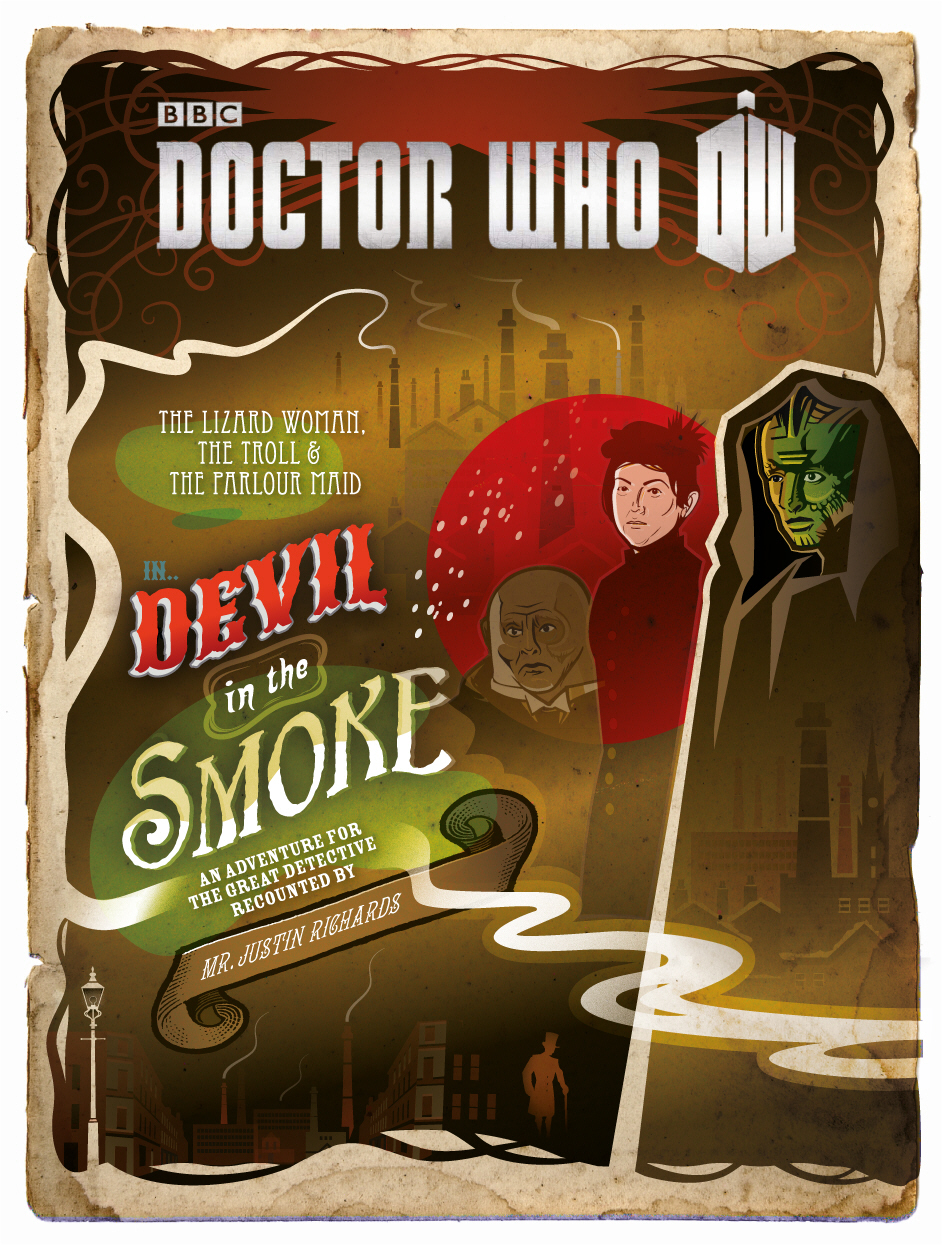
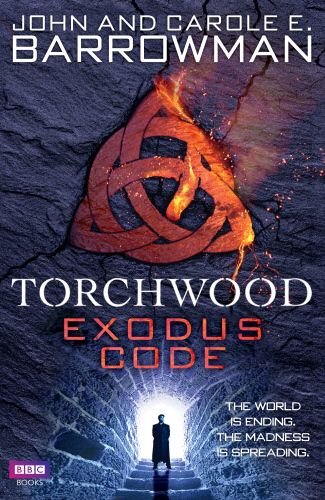 Written by
Written by 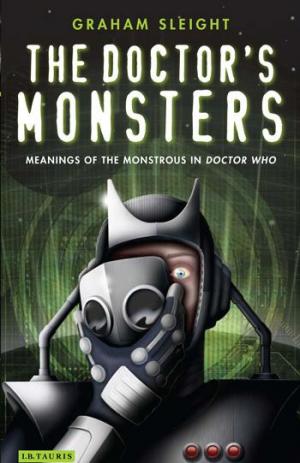
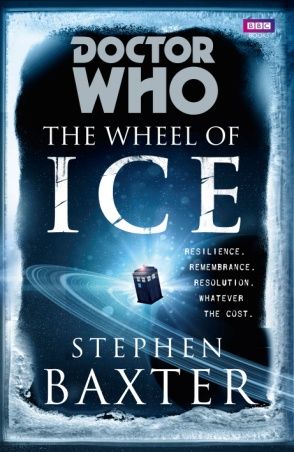 Written by Stephen Baxter
Written by Stephen Baxter






